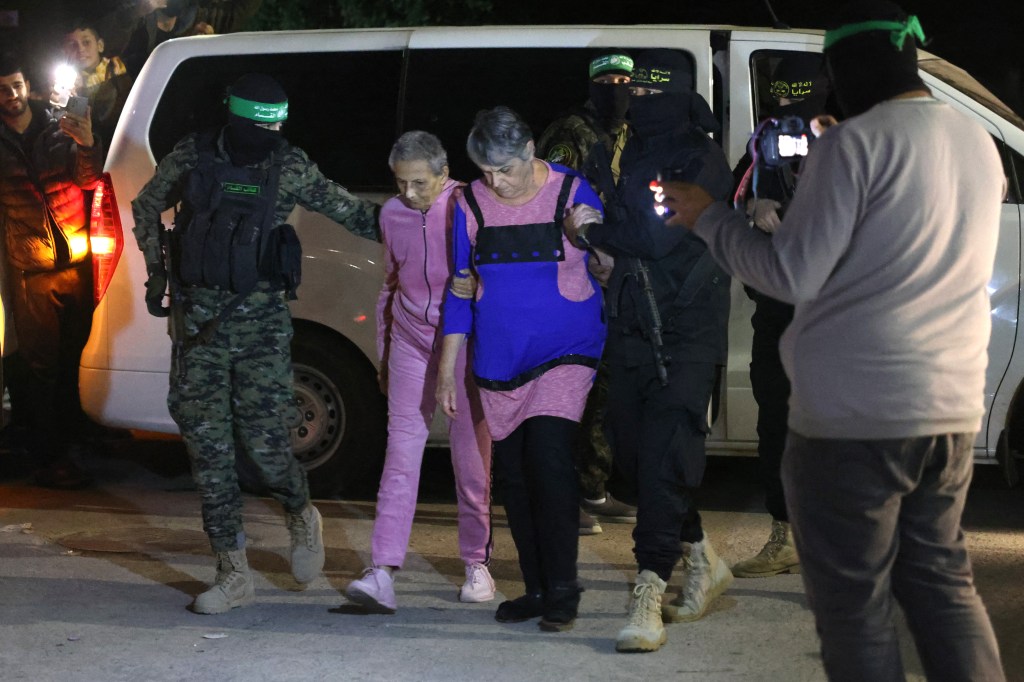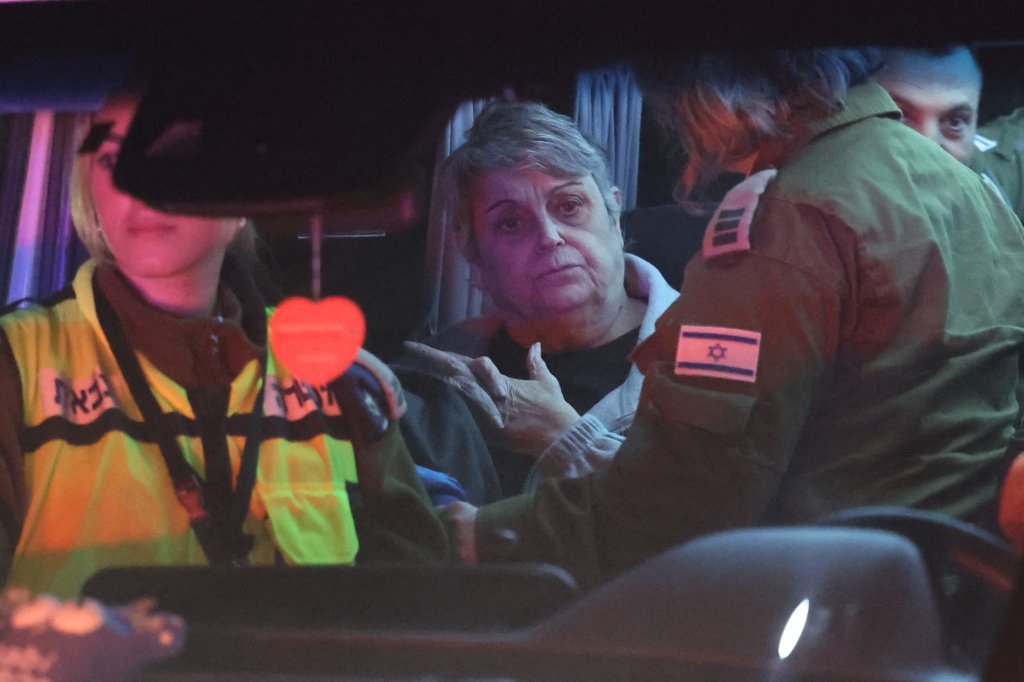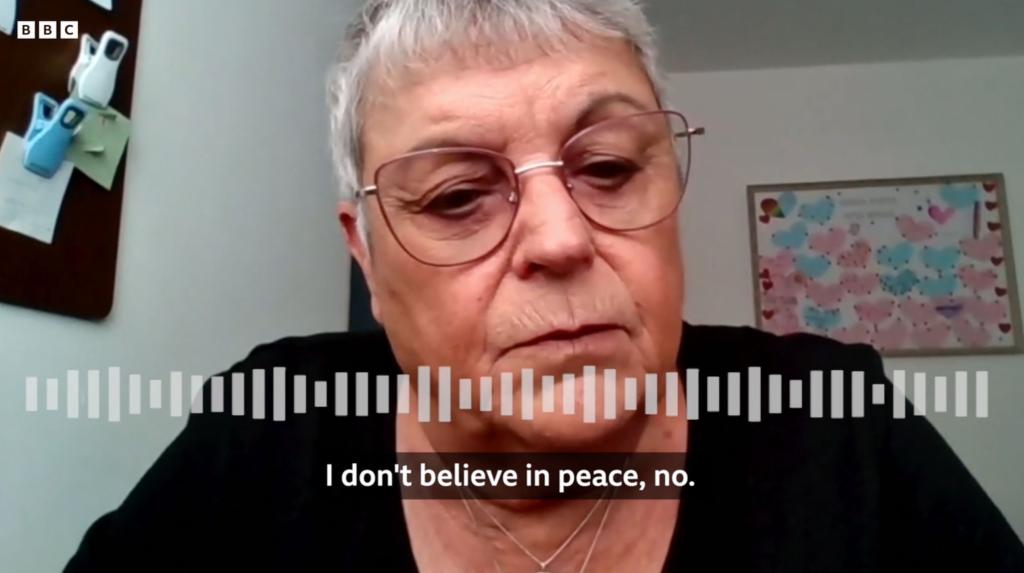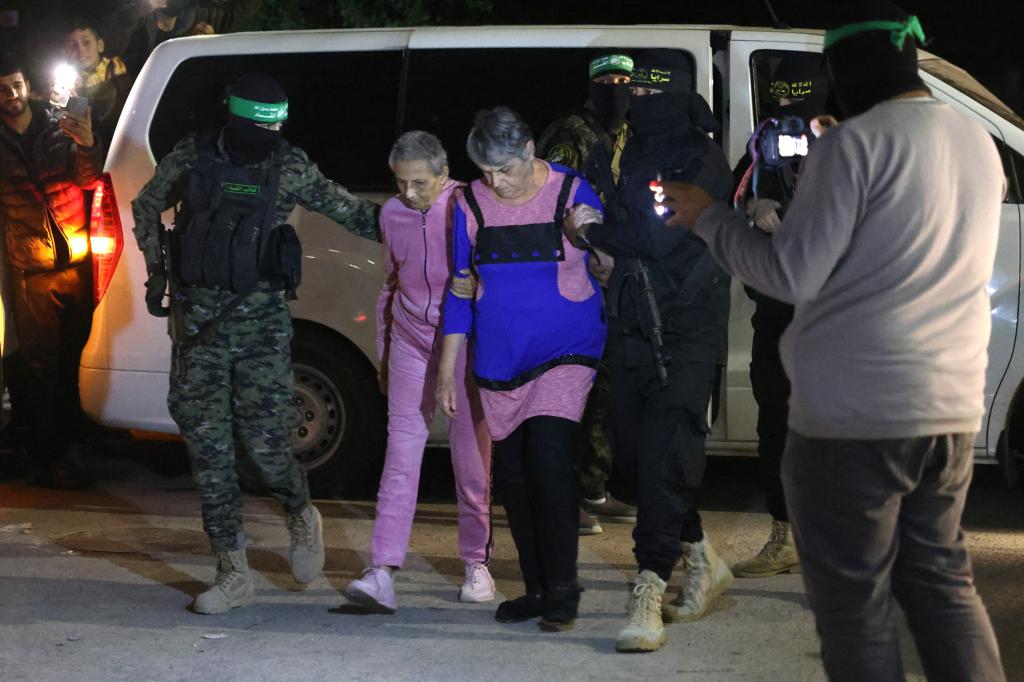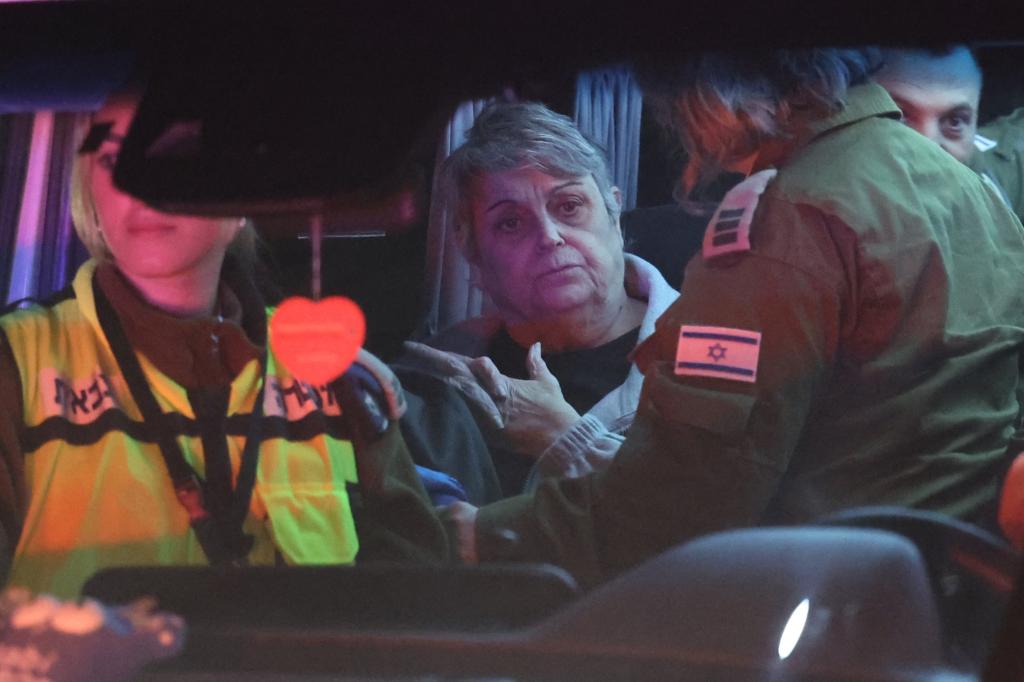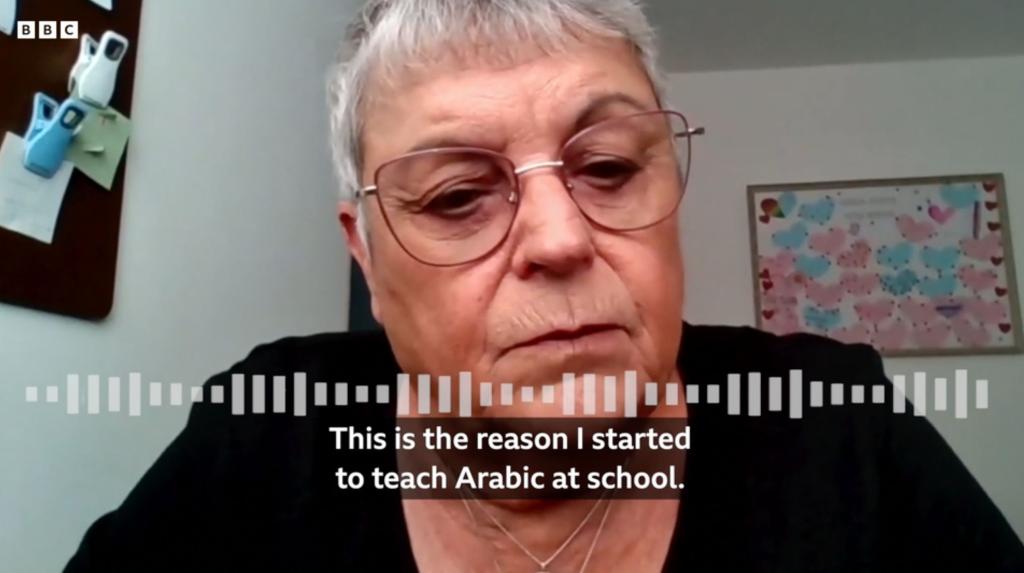Israeli peace activist held hostage by Hamas doesn’t ‘believe in peace’ anymore
An Israeli peace activist who was kidnapped and held hostage for 53 days in Gaza said the horrifying experience shattered her longstanding belief that there could be peace between Palestinians and Israelis.
“I don’t believe in peace, I don’t, sorry. I changed my mind,” Ada Sagi, who was captured by Hamas on Oct. 7, at the start of the Israel-Hamas war, told the BBC.
For decades, Sagi, 75, lived in the Nir Oz kibbutz near the Israel-Gaza border and taught Israelis Arabic so that they could speak to their neighbors.
Now, she’s urging the Israeli government to agree to a ceasefire and release the other 116 hostages who remain captive by Hamas.
“For many years, I believed in peace. It’s the reason why I started to teach Arabic at school. Maybe it will bring peace between the Arab people in Israel and the Jewish people,” she recalled thinking. “But from year to year, I understand Hamas don’t want it.”
Sagi, who turned 75 while in captivity, was among 105 hostages released in November in exchange for a week-long ceasefire and the release of some 240 Palestinian prisoners in Israeli jails.
“Israel have to do the deal. What Biden and Bibi say, to stop the war and bring back home all these hostages who [are] alive and also dead,” she said.
Sagi recalled during the harrowing 53-day period she was held hostage, students were paid to watch over her and the other hostages inside an apartment in the southern city of Khan Younis.
“I heard them say… 70 shekels ($18.83) for a day,” she said.
“It’s a lot of money in Gaza because they have no work. And if you work not with Hamas, it’s no more than 20 shekels for a day,” she added.
She also recalled the dreadful uncertainty of not knowing what would come with each passing day under Hamas’ control.
“Every knocking on the door you think there is somebody coming to take you,” she said.
When she was eventually told she would be going home on day 49, she didn’t believe them.
“At lunchtime, they gave us food… they take us by car to Khan Younis and we go [un]til the border of Rafah [on the border with Egypt].”
But something had gone wrong and they had to return to Khan Younis.
“We are told they are releasing women with children, [and you feel] all the happiness that you are going to be released, and [then] something goes wrong,” she said.
Upon their return, Sagi said they were taken to Nasser Hospital, the main hospital in southern Gaza, and told that’s where they would be staying — though the hospital’s director, Dr. Atef al-Hoot has denied any hostages were kept there.
The Israeli military said its troops detained “about 200 terrorists” who were in Nasser hospital during a February raid, and that they found ammunition as well as unused medicine intended for Israeli hostages.
Hamas has denied Israeli claims that it has been operating inside Nasser and other hospitals across Gaza.
Now free, Sagi and other residents of her former kibbutz, Nir Oz, are living in apartments in the city of Kiryat Gat.
“I lost my home. I lost my freedom — the whole place that I [have] to go back. Our village — kibbutz — is destroyed,” she said.
“I cried good. I’m not ‘iron woman’, like everybody says. Sometimes you cry and it’s good. My mother would say: ‘To cry, it cleans the eye.’”









